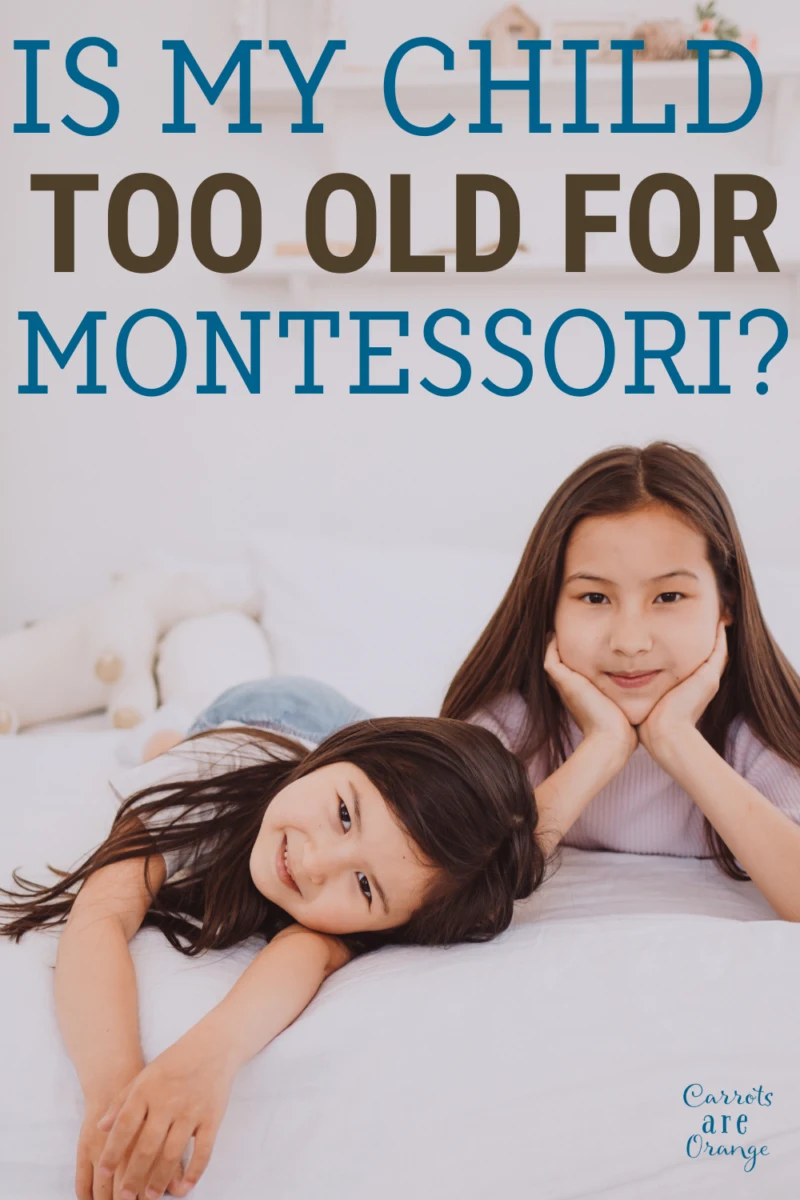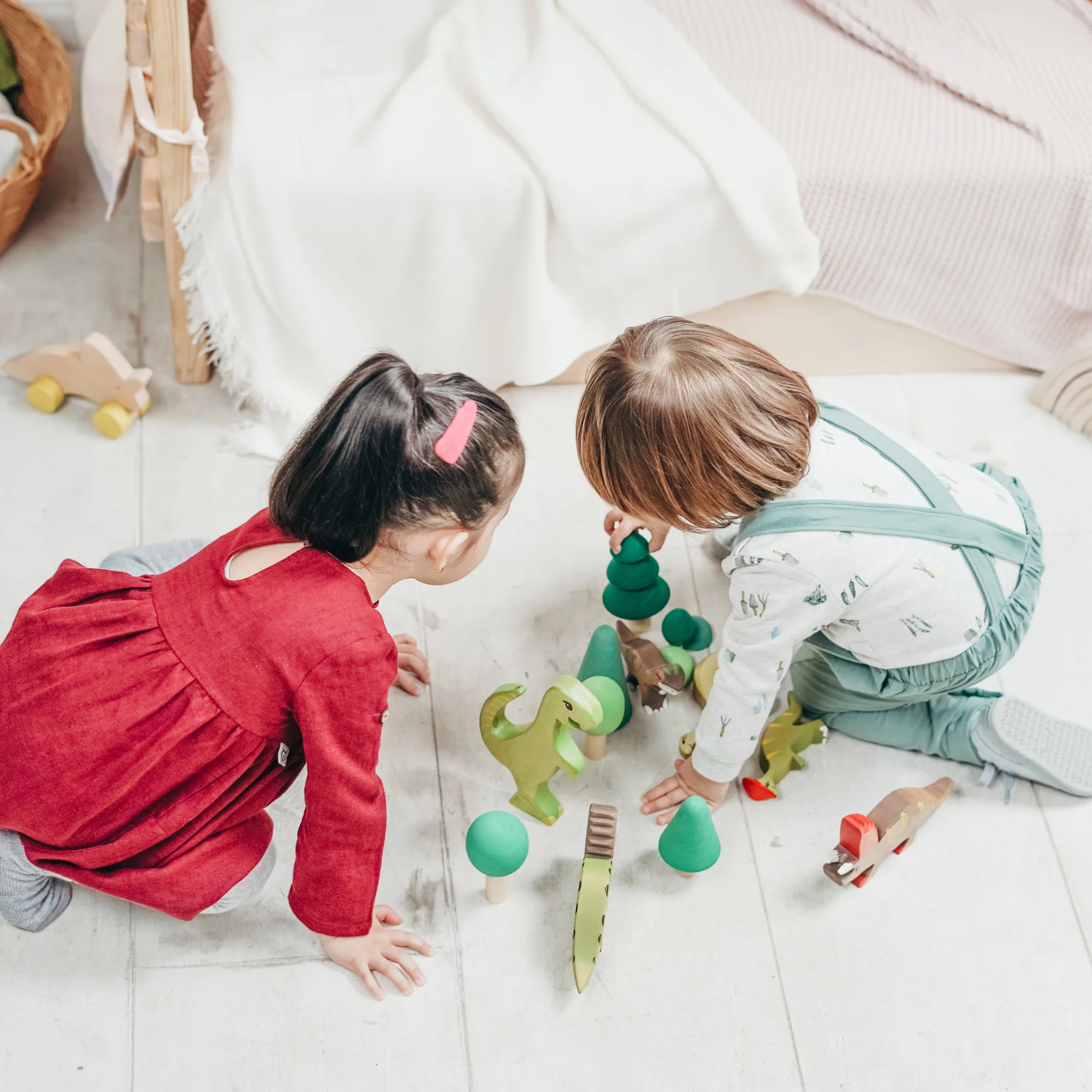As a parent learning about the Montessori method, you may be wondering, “Is my child too old for Montessori?” This is actually a two-fold question. Montessori is a lifestyle and not just a method of education, so there are two different answers.
Most parents want to provide the best opportunity for their child’s growth and development. Montessori is one educational path that can support these early years. Montessori emphasizes self-directed learning and exploration of one’s environment attracting many parents. But what is the best age for Montessori?

Starting Montessori with a Child
Answering that question is tricky. Montessori’s multi-age classrooms and the lifestyle approach are two reasons why.
“Education should not limit itself to seeking new methods for a mostly arid transmission of knowledge: its aim must be to give the necessary aid to human development…
…for man is a unity, an individuality that passes through interdependent phases of development.
Each preceding phase prepares the one that follows, forms its base, nurtures the energies that urge towards the succeeding period of life”
Dr. Maria Montessori, From Childhood to Adolescence, pg. 84
What Age Does Montessori Start?
Even though Montessori is an educational approach that has been embraced across the globe for its student-centered approach, many may wonder at what age does Montessori start?
The Montessori method caters to children in the age group of 2.5 to 6 years old. At this age, children are in a critical stage of development, and this approach enables them to learn using hands-on experiences, exploration, and discovery.
Each child’s learning journey is customized, and teachers act as facilitators to support them in their progress. This method instills self-confidence and independence in children, which forms the foundation for their future academic success.

What is the Right Montessori Age?
Montessori ages is a family by family decision. The preference is to begin the child as early as possible in a Montessori education setting. An infant and toddler program will help the child develop the routines and skills he or she will come to crave as growth continues.
Early childhood Montessori classrooms are the most readily available. This is the ideal starting point for most families. Three-year age groupings allow older students to mentor younger students.
A child coming midway into the environment as a four- or five-year-old may have gaps in the knowledge of the classroom sequence. It also limits the mentoring possibilities.
Normalization of the child allows for the routines and skills to be established at an early age. Older children oftentimes have a more difficult time developing these skills.
Related Read: What to Do When Your Partner Doesn’t Believe in Montessori

Is Montessori Good for Older Kids?
Entering a lower elementary environment is more difficult because of the building blocks that are presented in the early childhood classroom. However, it can still work, especially if that child enters at the beginning of the three-year cycle.
An upper elementary entry is probably the most difficult. Some schools offering this program, may not accept students this late. At this point in the environment, students need to possess self-motivation and independence. A love of learning is also a key aspect of this environment.
While entry into a Montessori school is more difficult at the older levels, it still can be accomplished.

Is My Child Too Old for a Montessori Lifestyle?
It is never too late to develop Montessori as a lifestyle. Learning about the method and implementing the routines and concepts will only benefit your family, despite the ages of the children. As a family, you must be invested in its practice.

